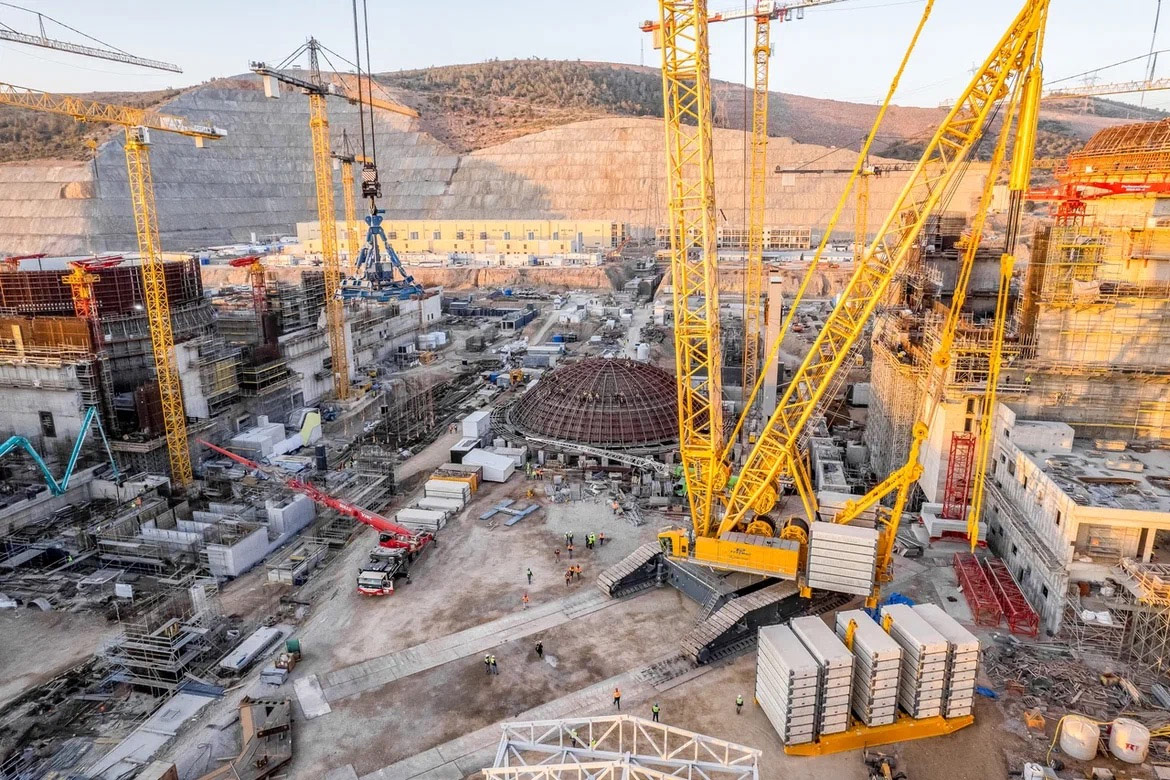Türkiye invites US firms to collaborate on Small Modular Reactors

Emphasizing SMRs’ crucial role in Türkiye’s energy future, Bayraktar highlights nuclear energy as essential for energy security, clean energy access, and achieving carbon neutrality by 2053
Türkish Energy and Natural Resources Minister Alparslan Bayraktar emphasized the pivotal role of small modular reactors (SMRs) in Türkiye’s long-term energy strategy and extended an invitation to American firms for collaboration in this sector.
Speaking during the 39th American-Türkish Conference in Washington, Bayraktar highlighted the significance of SMRs as a viable alternative within the nuclear industry, stressing their ease of operation and construction compared to traditional large-scale nuclear plants.
“Türkiye requires more conventional large-scale power plants. However, SMRs have made significant strides, emerging as a crucial alternative,” Bayraktar remarked.
“Regarding this, we invite companies, especially from the U.S., to invest and cooperate in Türkiye and to develop this technology together,” Bayraktar said.
His remarks came on the sidelines of the 39th American-Turkish Conference in Washington, which is a premier venue for U.S. and Turkish business leaders to engage in commercial diplomacy.
Türkiye’s first nuclear power plant in Akkuyu will mark a “historic milestone”

With ambitions to achieve a nuclear-installed capacity of 20,000 megawatts, Türkiye is actively advancing the construction of the Akkuyu Nuclear Power Plant in the southern province of Mersin, aiming for operational status “as soon as possible.”
Bayraktar underscored the inauguration of Türkiye’s maiden nuclear facility in Akkuyu as a transformative moment, diversifying the nation’s energy mix, curbing carbon emissions by 35 million tons annually, and fortifying energy security.
LNG cooperation to contribute to both Türkiye and US
Stressing that energy and natural resources are areas that can take economic relations between Türkiye and the U.S. much further, Bayraktar said they developed the Energy and Climate Dialogue mechanism together with the U.S. to bring bilateral relations in the field of energy to a “more institutional level.”
The minister said the first meeting of the mechanism was held with U.S. Secretary of Energy Jennifer Granholm on Wednesday.
“This platform will not only regulate the relations of governments and ministries with each other, but we will later make it a much more comprehensive and result-oriented platform with the participation of companies from Türkiye and America,” he added.

He said the Turkish Petroleum Pipeline Corporation (BOTAS) and the U.S. energy company ExxonMobil on Wednesday signed a deal on liquefied natural gas (LNG) trade.
“The agreement signed between BOTAS and ExxonMobil has the following feature; we had already started purchasing American LNG in Türkiye in the last few years, America had become one of our important suppliers, but the issue and project we are talking about now is actually a long-term agreement,” Bayraktar said.
Stressing that the deal could last 10-15 years, he added: “I think that this cooperation will contribute to both countries and companies and is important for our natural gas market in terms of diversification.”
Türkiye has seven international natural gas pipelines, five LNG facilities, including three floating storage and regasification units, and two underground natural gas storage facilities.
The country aims to become a key gas hub in the region, excel as an exporter, and be an effective manager of the gas it provides.
Source: Newsroom



